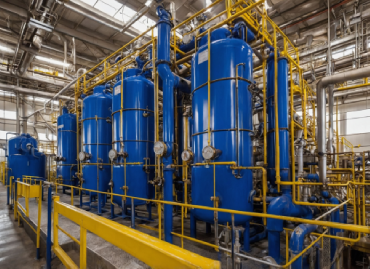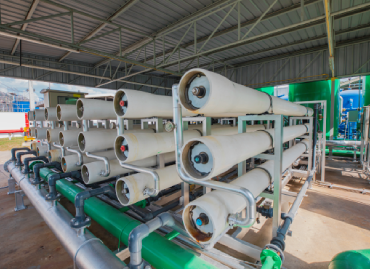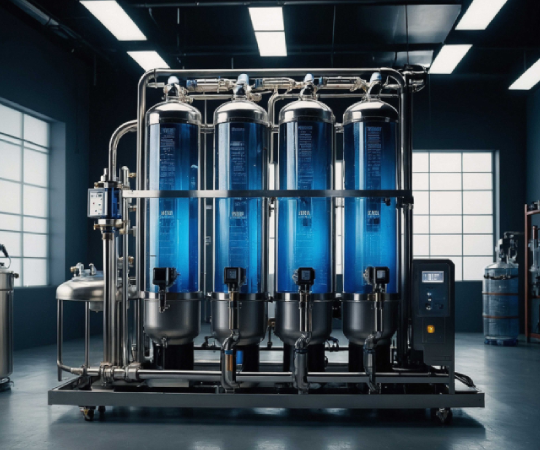- By Admin
- 08 Aug 2025
- WTP Plant
Advanced Treatment Systems Transforming Swimming Pool Water Management Across India
India's swimming pool industry has witnessed remarkable growth, fueled by rising urbanisation, lifestyle changes, and growing fitness awareness. Maharashtra, especially cities like Mumbai, Pune, and Nashik, exemplifies this expansion, with an increasing number of residential complexes, luxury hotels, sports arenas, and wellness centres investing in swimming pools.
These pools range from compact rooftop designs to expansive Olympic-sized installations, all requiring vast amounts of water for initial filling and continuous operation. As swimming pools become common features of modern architecture, the challenge of sustainably managing this essential resource has grown paramount.
"Clean water is the soul of every swimming pool. Managing its purity and responsibly treating wastewater isn't just a technical need—it's a commitment to health, hygiene, and sustainability. Every drop conserved reflects respect for both human well-being and the environment that sustains us all."
Water's Multifaceted Role in Pool Operations
Water in swimming pools is much more than just a medium for swimming; it supports filtration, circulation, chemical treatment, and temperature regulation. Maintaining safe and hygienic water quality is crucial since pool water directly contacts skin, hair, and open wounds. Consistent filtration removes suspended particles, while chemical dosing—primarily chlorination—prevents microbial contamination. Additionally, water losses occur regularly through evaporation, splashing, backwashing, and overflow, requiring replenishment to maintain levels. Beyond the pool basin, associated water uses in spas, saunas, and decorative water features add to the overall demand, emphasising the need for efficient water management systems.


Sources and Composition of Pool Wastewater
Swimming pool operations generate wastewater primarily through backwashing of filtration media, overflow water, and periodic cleaning discharges. Backwashing is essential to remove accumulated debris and contaminants from sand or cartridge filters; this water carries residual chlorine, dirt, oils, and chemical additives. Overflow water, often from rain or excess filling, contains diluted contaminants such as body oils and personal care products. Periodic deep cleaning using detergents or mild acids generates chemically laden wastewater. Though not industrial in scale, this wastewater contains substances harmful to the environment if released untreated, necessitating effective treatment and recycling practices.
Methods for Treating Swimming Pool Wastewater
Treatment of swimming pool wastewater begins with physical filtration and sedimentation to remove suspended solids. Backwash water is collected and passed through dedicated tanks or filters that separate debris from liquids. Chemical neutralisation processes follow, aimed at reducing residual chlorine and balancing pH levels to safe standards. In some advanced setups, biological treatment or activated carbon filtration is employed to remove organic compounds and residual chemicals more thoroughly. After treatment, the purified water is often reused for non-potable applications such as gardening, cleaning, or even as makeup water for the pool, thereby reducing freshwater intake and minimising discharge.
Adoption of Advanced Technologies for Sustainable Pool Management
Many modern swimming pool facilities are embracing innovative water treatment and management solutions to enhance efficiency and sustainability. Technologies like ozonation and UV disinfection reduce reliance on chlorine, improving water quality and user comfort. Automated chemical dosing and sensor-based monitoring enable real-time adjustments, minimising chemical usage and waste. Additionally, backwash recovery systems capture and recycle water from filtration cleaning cycles, substantially reducing wastewater volumes. These cutting-edge technologies not only cut water consumption but also align pool operations with sustainability certifications and green building standards, highlighting environmental responsibility alongside user safety.
Customised Water Treatment Solutions for Varied Pool Needs
Recognising the diverse scale and function of swimming pools, from small residential to large commercial installations, water treatment solutions are increasingly tailored to specific project requirements. Expert providers design, install, and maintain integrated systems encompassing Water Treatment Plants (WTP), Effluent Treatment Plants (ETP), and wastewater recovery units suited to each pool's operational profile. These customised solutions ensure compliance with local water safety regulations, optimise operational efficiency, and reduce costs through resource conservation. Furthermore, service contracts, real-time monitoring, and system upgrades help maintain peak performance and adapt to evolving water management challenges.
Summary And Conclusion
The burgeoning swimming pool industry in India, especially in Maharashtra's urban centres, highlights the critical need for advanced water management practices. Efficiently managing vast water volumes through tailored treatment systems, including filtration, chemical neutralisation, and reuse technologies, helps address environmental concerns and operational costs. Incorporating modern innovations like ozonation, UV treatment, and backwash recovery further enhances water sustainability. Customised solutions designed to meet the unique needs of each pool ensure regulatory compliance and long-term reliability. By adopting these responsible water management approaches, the industry not only protects natural resources but also delivers safer, cleaner pool experiences aligned with global sustainability goals.































































